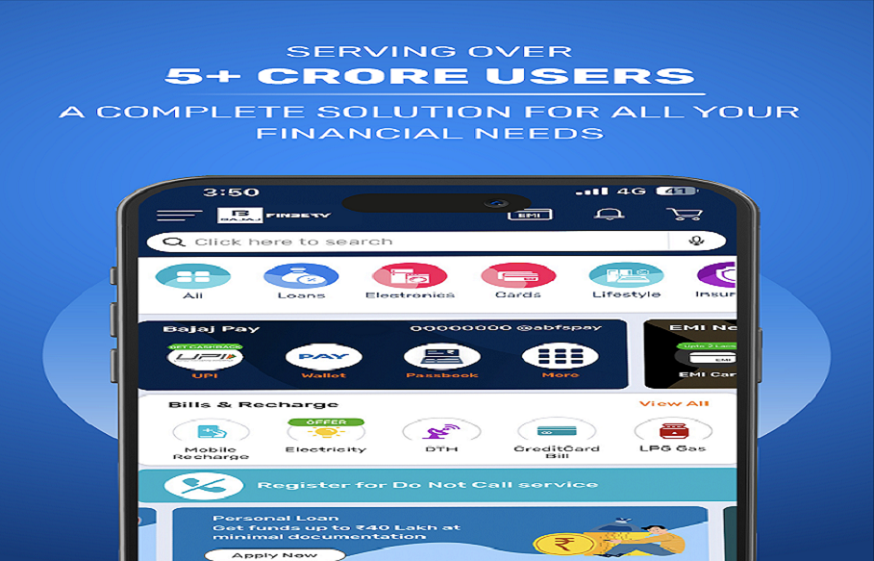
Greetings to all the ambitious entrepreneurs out there! As you strive to catapult your business to greater success, it’s crucial to know that sometimes, you might need an extra push. The competitive market we exist in calls for continual growth, and commercial loans might just be the trampoline you need to soar to those new heights. Whether you’re planning an expansion or investing in the latest technology, these financial solutions can unlock the path to endless growth opportunities.
So, join me on this exploration of business commercial loans, where we will unveil how they can augment your business’s potential. Let’s prepare to open doors like never before!
Recognising the Role of Business Commercial Loans for Growth
Business commercial loans have been the backbone of business development for an extended period. However, in recent years, we’ve seen a significant dip in the availability of these loans, which unfortunately has put a damper on the growth of enterprises, forcing them to scout for alternative financing sources.
Commercial loans have always been an essential component in promoting business growth since they provide businesses with the capital required for investing in new products, expanding their operations, and recruiting additional personnel. A scarcity of these loans would inevitably stifle a business’s potential to flourish and compete effectively in the market.
However, there’s a silver lining in this situation as we’re beginning to see a shift in the commercial loan landscape. Lenders are gradually relaxing their stringent credit norms and offering more attractive terms to borrowers, paving the way for new growth opportunities.
Should your business be mulling over a commercial loan, now is a prime time to evaluate your choices. With an improving availability and more favourable terms, you stand a good chance to optimise the growth of your enterprise.
Advantages of Financial Leveraging
Several compelling reasons might entice companies to consider commercial loans. Here are some vital benefits of financial leveraging:
Commercial loans can fuel your business expansion.
If you envision expanding your business, commercial loans can offer the necessary funds. This can enable you to scale up your company by establishing new locations, introducing fresh products or services, and onboarding more staff.
Commercial loans can optimise your cash flow.
If you’re grappling with cash flow issues, a commercial loan can provide the resources needed to handle expenses and ensure seamless business operations. This can help you evade missed payments, late fees, and other monetary penalties.
Commercial loans can foster your credit history.
Should your credit history be less than ideal, taking out a commercial loan and ensuring timely payments can help you cultivate a favourable credit history. This could be beneficial in the future when you need to access other types of financing, like a mortgage or a business loan.
Commercial loans can offer peace of mind.
If financial stability is a constant worry, a commercial loan can be a safety net, providing the much needed financial steadiness. This can enable you to concentrate on managing your business rather than fretting over making ends meet.
Commercial loans can offer flexibility.
Many commercial loans come equipped with flexible terms and repayment options, simplifying your budget management. Plus, certain lenders may even allow you to pay off the loan early without any penalties.
Different Types of Accessible Commercial Loans
There is a diverse array of business commercial loans available, each tailored to meet the unique needs of businesses. Here are some of the most common types of loans:
Business term loans:
These loans are usually used for short term objectives, such as funding inventory or expanding premises. They are typically repaid over 1-5 years.
Bridge loans:
As the term indicates, bridge loans are employed to “bridge” the gap between two financial products or stages of a business’s evolution. For instance, they can fund the acquisition of a new property before the sale of an old one is finalised. Bridge loans are generally repaid over a shorter period compared to other commercial loans, often within 12 months.
Invoice financing:
Also known as debtor finance, this loan type enables businesses to free up cash tied up in unpaid invoices. The lender either settles the invoices directly for the business or offers a loan equal to the value of the invoices. This finance option can be particularly beneficial for businesses struggling to access traditional lending due to a poor credit history.
Asset based lending:
These loans are secured against business assets such as property, machinery, or inventory. This loan type can be suitable for businesses that lack a strong track record or borrowing history, as it provides security for the lender.
Overdrafts:
An overdraft is a credit line that businesses can utilise when cash is running low. However, it’s crucial for businesses to remember that overdrafts carry high interest rates, so adequate planning is necessary to ensure using an overdraft is the most viable option for their specific situation.
Qualifying for a Business Loan
Qualifying for a business loan involves considering various factors. Foremost among these is a solid credit score, which lenders deem essential when assessing a business loan application. Additionally, a robust business plan demonstrating how the loan will be utilised for business growth is crucial. Lenders would also prefer to see some collateral, like property or equipment, to secure the loan. Lastly, you should be able to prove that your business generates enough cash flow to repay the loan.
Fulfilling these requirements should increase your chances of qualifying for a business loan, propelling your business towards success.
Pitfalls to Evade When Applying for Business Loans
When applying for business loans, certain common mistakes can hinder your progress. One major misstep is not shopping around for the most favourable loan rates and terms. A lack of preparedness in having your financial documentation in order before applying can slow down the process. It’s also crucial to thoroughly read the loan agreement before signing it to avoid consenting to terms that may not favour your business. Dodging these common errors can significantly improve your chances of securing the funding you need.
Essential Steps to Secure Funding
As your business expands, you’ll need to tap into financing opportunities to ensure continued growth. Here’s a step by step guide to enhance your chances of successfully securing the necessary funding:
Research the market and compare products:
Commercial loans offer a plethora of choices. Ensure you thoroughly explore the market and compare the various products before deciding what’s right for your business. Consider factors like loan terms, interest rates, fees, and the flexibility of repayment options.
Verify eligibility criteria:
Each lender will have their own set of eligibility requirements. Make sure to check these before applying. Typically, you’ll need to have been in business for a certain duration, possess a good credit history, and meet other financial conditions.
Prepare a strong application:
When you’re ready to apply for a loan, compile a compelling case to support your application. This should include financial statements, a business plan, and any other pertinent information.
Shop around for the best deal:
Once your loan is approved, compare offers from various lenders to ensure you’re getting the most favourable deal. Pay attention to interest rates, fees, charges, and repayment terms.
By following these steps, you’ll greatly enhance your chances of securing the funds required to expand your business.
Final Thoughts
The landscape of commercial lending is in constant flux, making it challenging to stay updated on the latest developments. However, by understanding the various types of commercial loans available and their potential benefits to your business, you can be confident in making the best possible use of these financing options.






